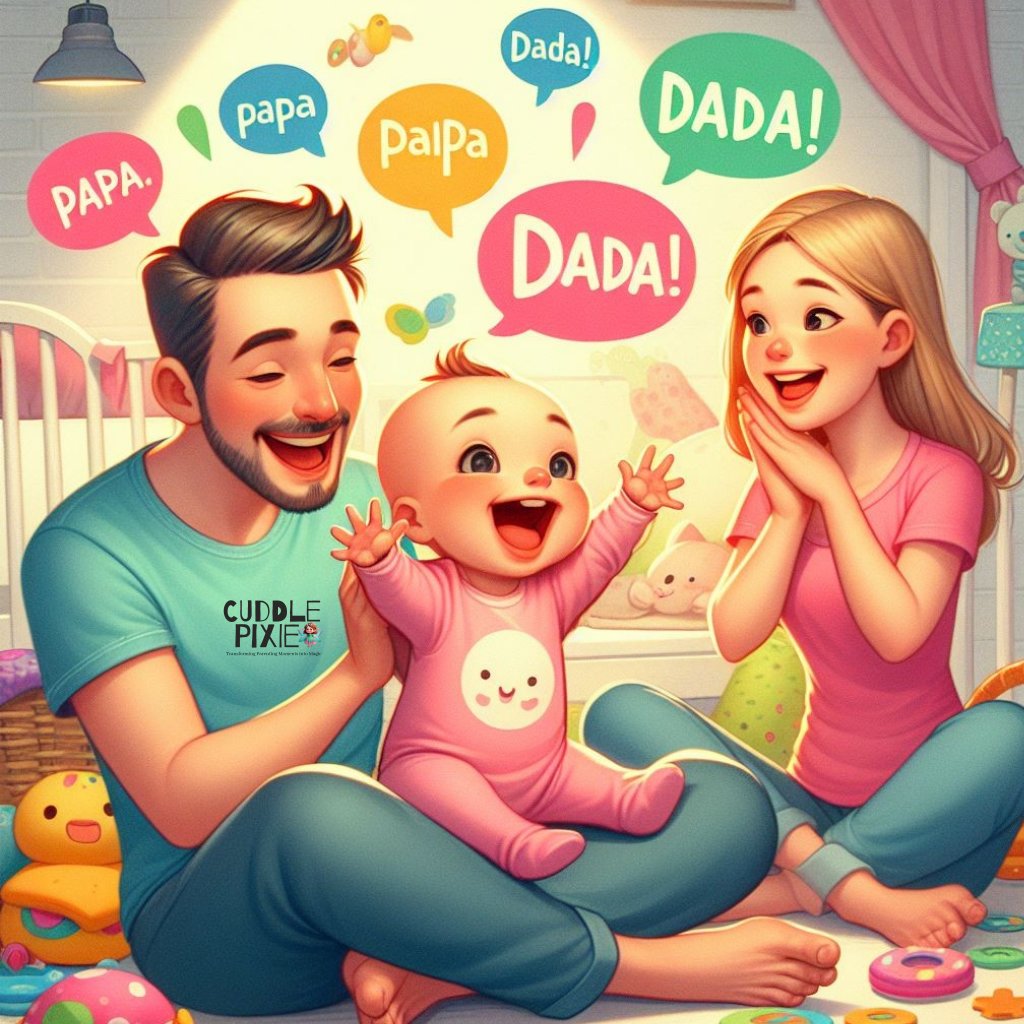When it comes to babies’ first words, parents eagerly await those magical moments. You may have noticed that “papa” or “dada” often precedes “mama” in your little one’s burgeoning vocabulary. Understanding why this happens can provide fascinating insights into speech development, parental interaction, and even cultural practices. Let’s delve into the various reasons behind this adorable linguistic milestone.
In This Article
The Science Behind Baby’s First Words
To begin, it’s essential to understand the basics of speech development in infants. Babies start babbling around six months, experimenting with different sounds and syllables. The path from babbling to meaningful words is influenced by several factors, including phonetic simplicity.
Babies’ earliest sounds are typically simple, repetitive, and easy to produce. Linguists note that consonants like “p” and “d” are articulated at the front of the mouth, making them simpler for infants to master compared to the nasal “m” sound.
These front-of-mouth consonants are often among the first that babies learn to produce, says Dr. Caroline Bowen, a pediatric speech-language pathologist.
Phonetic Simplicity and Articulation
Phonetic simplicity plays a significant role in why “papa” and “dada” often come before “mama.” The sounds “p” and “d” are produced with a clear, sharp burst of air, making them easier for babies to articulate. In contrast, “m” is a nasal sound requiring more complex breath control.
Consider the babbling phase, where you’ll hear repetitive consonant-vowel combinations like “bababa” or “dadada.” These repetitive patterns are simpler for babies to produce and recognize. Hence, “papa” and “dada” emerge naturally from this phonetic experimentation.
Role of Repetition and Reinforcement
Parental interaction plays a pivotal role in early language development. Babies learn through imitation and reinforcement. When parents frequently say “papa” or “dada,” it creates a loop of repetition that encourages babies to mimic these sounds.
Parents often engage in exaggerated, playful vocalizations with words like ‘dada’ or ‘papa’, explains Jane Smith, a mother of two and early childhood educator. This repetition helps babies latch onto these words more quickly.
To support this process, parents can emphasize these words during daily routines, reinforcing the sounds through consistent and enthusiastic use.
Visual and Emotional Cues
Fathers often engage in dynamic, playful interactions that are rich in visual and emotional cues. This type of engagement can make words like “papa” or “dada” more attractive for babies to try mimicking. The exaggerated facial expressions and varied vocal tones captivate the baby’s attention, encouraging vocal imitation.
In our family, ‘dada’ was a constant presence in playful games and activities, recalls Tom Jenkins, a father of three. The fun and laughter during these times made ‘dada’ a natural first word for our kids.
Developmental Milestones and Cognitive Patterns
Understanding developmental milestones helps shed light on why certain sounds emerge first. Around six to ten months, babies start recognizing and producing simple sounds. They begin to understand the concept of labeling objects and people, often starting with the most frequently heard and reinforced words.
Babies’ brains are wired to detect patterns,” says Dr. Patricia Kuhl, co-director of the University of Washington Institute for Learning & Brain Sciences. “The repetitive and clear sounds in ‘papa’ and ‘dada’ align well with their cognitive development at this stage.
Cultural and Social Influences
Cultural practices can also influence which words come first. In some cultures, there is a strong emphasis on teaching babies to say “papa” or “dada” first. This social reinforcement, combined with frequent repetition, can shape early speech patterns.
In many cultures, fathers take pride in being recognized by their children’s first words,” notes cultural anthropologist Dr. Alma Gottlieb.
This cultural expectation can lead to more focused efforts in teaching ‘papa’ or ‘dada’ early on.
Individual Variations and Exceptions
It’s important to acknowledge that not all babies follow the same pattern. Individual differences, such as temperament, environmental factors, and even the amount of time spent with each parent, can influence which words come first. Some babies may say “mama” first, especially if they spend more time with their mothers or if “mama” is emphasized more frequently in their environment.
Final Thoughts
In conclusion, the reasons why babies often say “papa” or “dada” before “mama” are multifaceted, involving phonetic simplicity, repetition, visual and emotional cues, developmental milestones, and cultural influences. Each baby’s journey to their first words is unique, shaped by their interactions and experiences.
As parents, the best approach is to provide a rich, engaging linguistic environment, full of repetition, playful interaction, and encouragement. Whether “papa,” “dada,” or “mama” comes first, each word is a cherished milestone on the path to full speech.
We’d love to hear your experiences! Share your baby’s first words in the comments below. Don’t forget to subscribe to our newsletter for more insights and tips on child development. Check out our related articles on encouraging early speech and fostering language development in infants.
